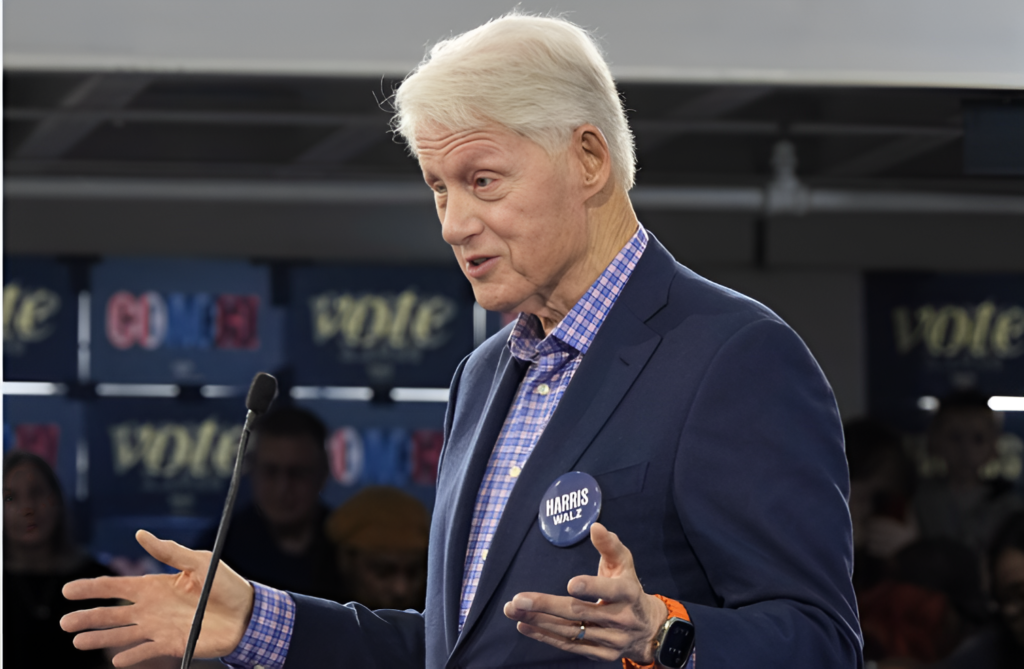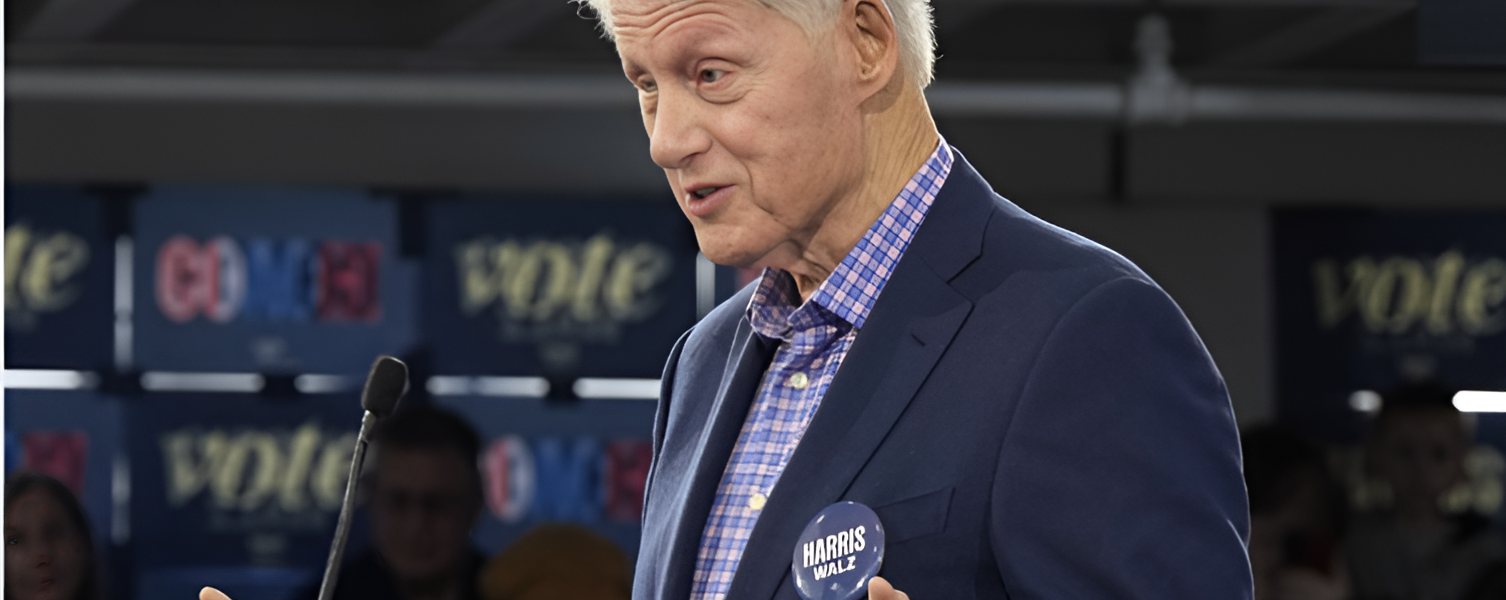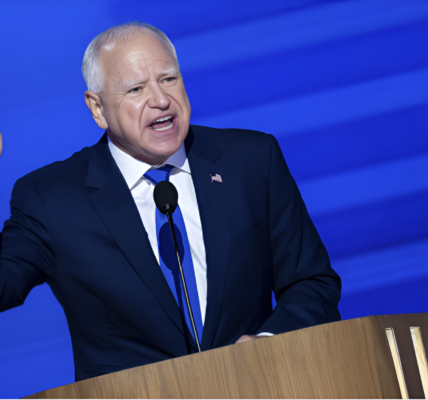
Last Sunday morning, as the sun rose over North Carolina, Bill Clinton stood in a Black megachurch, delivering a sermon of sorts. His focus wasn’t scripture alone but a pressing political gospel: the rising costs of insulin, prescription drugs, and healthcare for those with preexisting conditions.
“And we’re talking about Haitian immigrants eating pets?” Clinton asked, prompting a wave of murmured amens and affirmations from the congregation. “And apparently, there’s no price for this.”
In a few cutting sentences, the former president captured the challenge Democrats face in combating a political figure like Donald Trump—someone whose rhetoric and behavior have disrupted the norms of American politics. Nearly eight years after Hillary Clinton’s loss to Trump, Democrats—and the media—still grapple with countering his chaos without being consumed by it.
But William Jefferson Clinton has his answer, an approach reminiscent of his sharpest moments during the 1992 campaign. Back then, under the weight of Republican attacks, he declared, “They care more about my past than your future.” Today, his advice for Democrats is similar: Focus on the voters’ insulin, not Trump’s bombast.
Clinton believes Vice President Kamala Harris can craft her appeal with an open hand.
“She wants to be inclusive and open a new era of working together,” he told me in Fayetteville. Across party lines? “Yes, I think it’s really important because people are sick of all this paralyzing bad-mouthing.”
Yet Clinton isn’t calling for Harris to distance herself from President Joe Biden. Instead, he suggests she embrace a third way: “Pick the things she cares most about and believes in, then go beyond what’s been done.”
For instance, Clinton highlighted immigration reform. “Most people don’t even know the Democrats supported the immigration bill,” he said. “If they did, it would make a difference.”
Nobody knows better than Clinton how to counter Republicans when they threaten deeply popular programs like Social Security, Medicare, or the Affordable Care Act. He’s keenly aware that while Americans may talk conservatively, they act liberally when it comes to government programs.
His advice encapsulates a strategy Democrats have long struggled with: play defense (on immigration), go on the offensive (on healthcare), appeal to voters exhausted by the Trump era, and navigate Biden’s unpopularity without disowning him.
Harris has attempted all these moves, but Clinton acknowledges she hasn’t delivered them with the precision or power of the party’s past stars. Democrats, he admits, were spoiled by two generational talents: Barack Obama and himself.
Clinton, now 78, wears his age lightly. Hearing aids and sneakers don’t diminish his energy or charisma, as he crisscrossed North Carolina for five stops. In Fayetteville, Wilson, Greenville, and Rocky Mount, Clinton leaned into his role as the “Secretary of Explaining Stuff,” as Obama once called him.
In Fayetteville, he broke down inflation using bicycles as an analogy. “Suppose there were three bicycles in Wilson, and every one of you wanted one,” he said. “Think it would drive the price of the three up? That’s all that happened, and it happened everywhere in the world.”
At another stop, he explained how Russia and Ukraine’s wheat production affected global prices. His explanations were less about dazzling with data and more about distilling complex issues into digestible narratives.
Yet it’s not just Clinton’s ability to simplify policy that captivates. It’s his knack for delivering tight, memorable lines. Last summer at the Democratic convention, he quipped, “Don’t count the lies, count the I’s,” to critique Trump’s self-centered rhetoric.
Last weekend, he reminded voters, “Voting is showing up for your country.” Contrasting Harris with Trump, he added, “If you hire someone to run the country, you want her to make it better, not make you madder.”
Clinton’s North Carolina swing illuminated the Democrats’ enduring challenge: reconnecting with blue-collar voters, particularly in the South. In eastern North Carolina—the heart of the tobacco belt and a former Democratic stronghold—white voters who once supported candidates like Clinton have shifted solidly Republican.
At a rally in Fayetteville, Grady Todd, a power company worker in a Carolina Panthers cap, admitted he’s the only Democrat on his crew. “Everybody else is for Trump,” he said.
Michael McGuinness, a civil rights attorney, blamed the party’s neglect of working-class voters. Vince Durham, an attorney from Rocky Mount, said Republicans have been effective in branding Democrats as “crazy liberals.”
Clinton, ever the pragmatist, doesn’t claim to have a quick fix. “What we’ve got to do is more deliberately speak in the language of inclusion and look for ways to demonstrate it,” he said.
Traveling with Clinton felt like witnessing a masterclass in retail politics. Whether reminiscing with former Governor Jim Hunt or chatting with ex-Representative Bob Etheridge, Clinton’s gift for connection remains unmatched.
“He just knows how to connect,” Etheridge said. “He’s one of the few people who can make a complicated issue sound simple.”
And yet, Clinton’s reflections on the erosion of working-class support reveal the broader cultural and identity shifts at play. He acknowledges that life is about more than money and that cultural divides often outweigh economic policy.
As Clinton campaigns for Harris and other Democrats, he represents both a relic of the party’s past and a guide for its future. His voice carries the wisdom of a man who once bridged divides that now seem insurmountable.
For Clinton, the answer lies in doing what he does best: connecting, explaining, and finding common ground, even if the Democrats’ road to victory will require more than one election cycle to rebuild.
“Rome wasn’t built in a day,” he said. But with a little Southern charm and a lot of hard work, Clinton believes there’s still hope for the Democrats’ vision of inclusion and progress.





